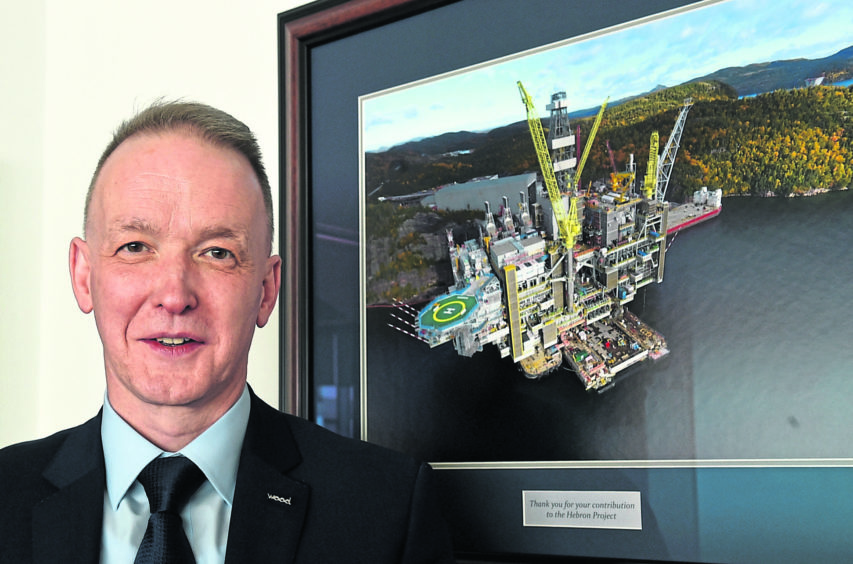
Wood chief executive Robin Watson said yesterday the Aberdeen-based energy service giant was successfully “broadening” its business and becoming less reliant on offshore oil and gas projects.
Speaking at the end of the firm’s annual general meeting – and fresh from announcing a 20-year deal potentially worth £770 million, for work at the Sellafield nuclear fuel reprocessing and nuclear decommissioning site in Cumbria – Mr Watson highlighted major progress for its global diversification strategy.
“The business has changed a lot,” he said, adding: “Just a few years ago, about 85% of our work was upstream oil and gas projects.
“Now it’s just 30% upstream and 30 % downstream/midstream. About 40% of our business is non oil and gas.”
Wood’s oil and gas activities in the UK North Sea now account for less than 5% of turnover in another major sign of the company’s evolution, he said.
But Mr Watson said the group, which diversified from its initial focus on fishing, fish processing and marine engineering after the onset of the North Sea oil boom, had no intention of quitting its home city.
Wood’s commitment to Aberdeen is as strong as ever and growing again on the employment front, he said.
The firm is steadily growing its business in mining, power, industrial, infrastructure and public sector markets globally.
A recent re-appointment to a multi-million-pound Homes England project to support housing growth south of the border highlighted the extent of its reach into markets far removed from oil and gas.
Wood’s AGM saw 18.22% of shareholder votes cast rejecting the company’s remuneration report.
A trading update from the company, which recently caved into pressure over its bonuses for top executives, said first-quarter performance was “slightly ahead of prior year”.
The group is expecting revenue growth of around 5% this year, with cost savings of around £46m also helping to keep operating profits in line with market expectations.
Recommended for you
